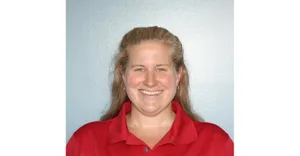November 11, 2019
Under a proposed settlement announced today by the United States, the State of Michigan, and the Saginaw Chippewa Indian Tribe of Michigan, the Dow Chemical Co. will implement and fund an estimated $77 million in natural resource restoration projects intended to compensate the public for injuries to natural resources caused by the release of hazardous substances from Dow’s Midland, MI facility.
The proposed settlement, which was lodged Friday in the U.S. district court for the Eastern District of Michigan, is subject to public comment and to approval by the court.
U.S. Attorney Matthew Schneider will join trustees at a public meeting to provide more information on the plan and to answer questions at 7 p.m. Thursday, Nov. 21, at the Four Points by Sheraton Saginaw.
According to a complaint filed on behalf of federal, state, and tribal natural resource trustees, Dow released dioxin-related compounds and other hazardous substances from its Midland, MI, facility, and such releases caused injuries to natural resources. The complaint alleges that hazardous substances from Dow’s facility adversely affected fish, invertebrates, birds, and mammals, contributed to the adoption of health advisories to limit consumption of certain wild game and fish, and resulted in soil contact advisories in certain areas including some public parks.
The settlement identifies a number of specific natural resource restoration projects that will be implemented in different parts of Midland, Saginaw, and Bay counties, consistent with provisions of a natural resource restoration plan developed by designated natural resource trustees, including the Department of the Interior’s U.S. Fish and Wildlife Service and Bureau of Indian Affairs; the State of Michigan’s Department of Natural Resources (DNR), Department of Environment, Great Lakes, and Energy (EGLE), and Department of Attorney General; and the Saginaw Chippewa Indian Tribe of Michigan.
Dow will implement eight natural resource restoration projects described in the settlement at the company’s expense, subject to oversight and approval by the natural resource trustees. In addition, Dow will pay $6.75 million, plus interest, to a restoration account that will used by trustees to fund five other restoration projects described in the settlement.
The settlement also requires Dow to pay another $15 million, plus interest that will be used by the Trustees for various purposes. At least $5 million of this funding will be used to support implementation of additional natural resource restoration projects that will be selected by the trustees in the future, after a separate opportunity for public input on restoration project proposals. This funding will also be used to cover costs of long-term monitoring and maintenance of restoration projects under the settlement, as well as costs that the trustees will incur in overseeing restoration projects.
Finally, Dow is required to reimburse costs previously incurred by federal and state trustees in connection with the assessment of natural resource damages relating to Dow’s releases.
“Today’s settlement is good news for communities in this region, and it builds upon ongoing cleanup efforts under the direction and supervision of the EPA and the Michigan Department of Environment, Great Lakes and Energy,” said Principal Deputy Attorney General Jonathan Brightbill of the Justice Department’s Environment and Natural Resources Div. “The extensive habitat restoration provisions of this settlement will help accelerate recovery of natural resources over a large area where resources have been adversely impacted as a result of decades of exposure to Dow’s hazardous substances.”
“With this settlement, the natural resources in the Saginaw Bay area will be restored through the creation of natural habitat areas, nature preserves, hiking and biking trails, and greater access for fishing, hunting, and canoeing,” said U.S. Attorney Matthew Schneider of the Eastern District of Michigan. “We are thankful to Dow and the trustees for their work in reaching this excellent result, which will benefit the residents of the Saginaw Bay area and the wildlife and waterfowl that inhabit it.”
“The settlement requires Dow to implement and fund restoration projects outlined in a draft restoration plan that will benefit fish and wildlife and provide increased outdoor recreation opportunities for the American public,” said Charles Wooley, Regional Director for the U.S. Fish and Wildlife Service. “This restoration work can now begin even while separate, ongoing clean-up efforts continue.”
Click here for more industry news updated throughout the day
You May Also Like


